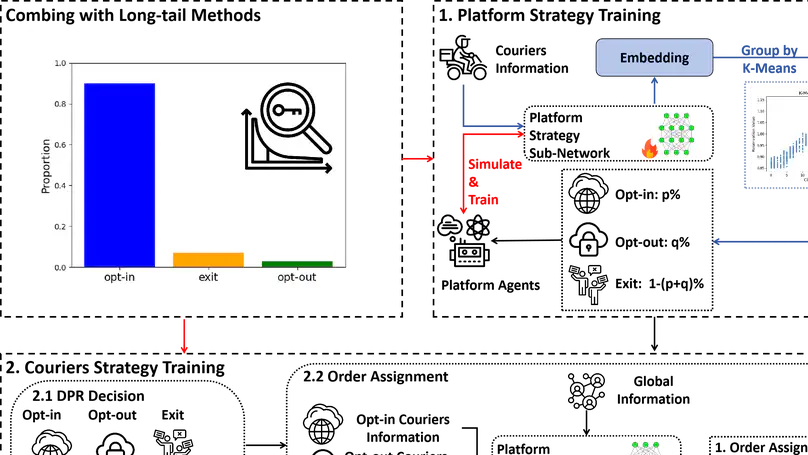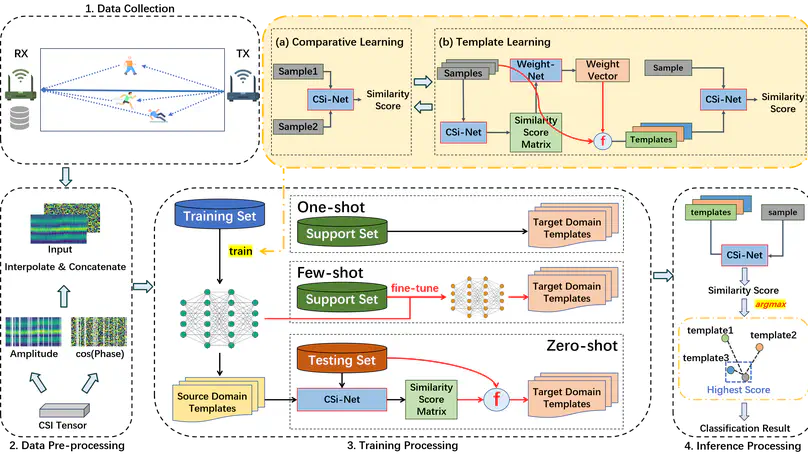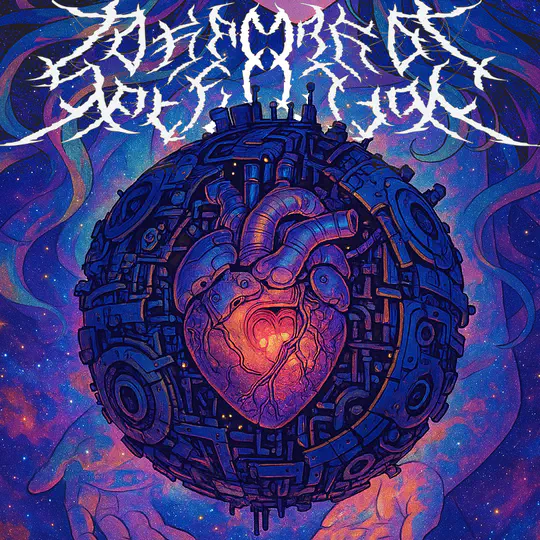Zijian (Longino) ZHAO 赵子健
The Hong Kong University of Science and Technology
Biography
I’m a Ph.D. candidate in Department of Civil and Environmental Engineering and Center for Scientific Computation at The Hong Kong University of Science and Technology, under the supervision of Prof. Sen Li. My current research primarily focuses on Deep Reinforcement Learning, Intelligent Transportation, Smart City, and AI Ethics.
I received my B.Eng. degree from School of Computer Science and Engineering at Sun Yat-sen University in 2024, mentored by Prof. Kai Huang (Robot RL), Prof. Chengying Gao and Prof. Ning Liu (Music AI). I was also a visiting student in Shenzhen Research Institute of Big Data at The Chinese University of Hong Kong (Shenzhen) from 2023 to 2024, under the guidance of Prof. Guangxu Zhu (Deep Wireless Sensing).
Aside from academics, I’m also the vocalist, guitarist, and bassist for several metal and rock bands, including Tokamak Disruption, NEWS (personal band) and Rights of Lethe (dissolved). If you are interested in collaborating with me (whether in academia or music), please feel free to reach out!
- Deep Learning & Reinforcement Learning & Multi-Agent
- Interdisciplinary AI & AI Ethics & AI Humanities
- Smart City & Intelligent Transportation & Mobile Computing
- Integrated Sensing, AI, and Communication & Network and Edge Intelligence
- Music Information Retrieval & Natural Language Processing & Multi-Modal
Ph.D. in Civil Engineering (Scientific Computation), 2024~
The Hong Kong University of Science and Technology (Clearwater Bay Campus, Hong Kong)
B.Eng. in Computer Science and Technology (National Basic Subject Talent Training Plan), 2020~2024
Sun Yat-sen University (Guangzhou Campus)
Latest News (Last Yaer)
2025.12: Our paper “OSPO: One-Step Policy Optimization for Real-Time Order Assignment on Ride-Sharing Platforms with Autonomous Vehicles” has been submitted for possible publication.
2025.12: Our paper “Discriminatory Order Assignment and Payment-Setting on Food-Delivery Platforms: A Multi-Action and Multi-Agent Reinforcement Learning Framework” has been accepted by Transportation Research Part E.
2025.12: Our paper “Ride-Hailing Order Dispatching with A Mixture of On-Demand and Pre-Booked Requests via Reinforcement Learning” has been accepted by CICTP 2026.
2025.12: Our paper “KNN-MMD: Cross Domain Wireless Sensing via Local Distribution Alignment” has been accepted by IEEE TMC.
2025.12: I have passed my Ph.D. Qualifying Examination with the proposal titled “Algorithmic Discrimination in On-Demand Food-Delivery Platforms using Multi-Agent Reinforcement Learning”.
2025.12: Our paper “CSI-BERT2: A BERT-inspired Framework for Efficient CSI Prediction and Classification in Wireless Communication and Sensing” has been accepted by IEEE TMC.
2025.11: Our proposal “Towards Fairness in Transportation Gig Markets: Identifying, Imitating, and Mitigating Algorithm Discrimination via Deep Reinforcement Learning” has been accepted by AAAI/SIGAI Doctoral Consortium 2026.
2025.10: Our paper “Enhancing Reasoning Reliability through Formal Logic Verification in Reinforcement Learning” has been submitted for possible publication.
2025.09: Our paper “The Impacts of Data Privacy Regulations on Food-Delivery Platforms” has been accepted by Transportation Research Part C.
2025.09: Our papers “Ride-Hailing Order Dispatching with A Mixture of On-Demand and Pre-Booked Requests via Reinforcement Learning” and “Zero-Effort Image-to-Music Generation: An Interpretable RAG-Based VLM Approach” have been submitted for possible publication.
2025.09: Our proposal “Towards Fairness in Transportation Gig Markets: Identifying, Imitating, and Mitigating Algorithm Discrimination via Deep Reinforcement Learning” has been submitted for possible publication.
2025.09: Our papers “LoFi: Vision-Aided Label Generator for Wi-Fi Localization and Tracking” and “Modelling the 5G Energy Consumption using Real-world Data: Energy Fingerprint is All You Need” have been accepted by IEEE Globecom GenAI NGN Workshop 2025.
2025.09: Our paper “IfWorld: A Multi-Agent Framework for Cross-Disciplinary Counterfactual Scenario Reasoning” has been submitted for possible publication.
2025.08: We have uploaded the datasets WiGesture, WiFall, WiCount, LoFi, and RPMC-L2 in Hugging Face.
2025.08: Our paper “Towards Advanced Mathematical Reasoning for LLMs via First-Order Logic Theorem Proving” has been accepted by EMNLP 2025 (main conference).
2025.08: We have uploaded the code and paramters of CSI-BERT, CSI-BERT2, Adversarial-MidiBERT, PianoBART, and Skip-BART in Hugging Face.
2025.08: Our paper “CSI-BERT2: A BERT-inspired Framework for Efficient CSI Prediction and Classification in Wireless Communication and Sensing” has been submitted for possible publication.
2025.07: Our papers “One Step is Enough: Multi-Agent Reinforcement Learning based on One-Step Policy Optimization for Order Dispatch on Ride-Sharing Platforms” and “Confident RAG: Enhancing the Performance of LLMs for Mathematics Question Answering through Multi-Embedding and Confidence Scoring” have been submitted for possible publication.
2025.06: Our paper “Does MMD Really Align? A Cross Domain Wireless Sensing Method via Local Distribution” has been accepted by IEEE/CIC ICCC 2025.
2025.06: Our paper “An Overview of Domain-Specific Foundation Model: Key Technologies, Applications and Challenges” has been accepted by Science China Information Sciences.
2025.05: Our papers “Triple-BERT: Do We Really Need MARL for Ride-Sharing Order Dispatch?”, “Automatic Stage Lighting Control: Is it a Rule-Driven Process or Generative Task?”, and “Towards Advanced Mathematical Reasoning for LLMs via First-Order Logic Theorem Proving” have been submitted for possible publication.
2025.05: Our technical report “A Short Overview of Multi-Modal Wi-Fi Sensing” has been available in ArXiv.
2025.04: Our paper “Let Network Decide What to Learn: Symbolic Music Understanding Model Based on Large-scale Adversarial Pre-training” has been accepted by ACM ICMR 2025.
2025.04: Our paper “Multi-Agent Reinforcement Learning for Order Assignment and Payment Setting on Food-Delivery Platforms: The Implicit Algorithmic Biases” has been accepted by ISTDM 2025.
2025.04: Our paper “The Impacts of Data Privacy Regulations on Food-Delivery Platforms” has been submitted for possible publication.
2025.03: Our technical report “Label Unbalance in High-frequency Trading” has been available in ArXiv and has been reported in QuantML.
2025.02: We have uploaded the WiGesture dataset in Sensing Dataset Platform (SDP), which can be used for Wi-Fi gesture recognition, people identification, and cross-domain tasks.
2025.02: Our paper “CrossFi: A Cross Domain Wi-Fi Sensing Framework Based on Siamese Network” has been accepted by IEEE IOT-J.
Activity and Service
Code: Python, C/C++ (CCF-CSP:320, Top 0.8%), Java, Matlab, SQL Music: Guitar, Keyboard, Bass, Ukulele
Interview: HKUST JUPAS 2025
Society Membership: IEEE Student Member, ACM Student Member, AAAI Student Membership,CCF Student MemberTPC Membership: IEEE WCNC Workshop 2024-2025, IEEE PIMRC Workshop 2024-2025, IEEE Globecom Workshop 2025, IEEE/CIC ICCC Workshop 2025Technical Reviewer: IEEE TPAMI, IEEE TMC, IEEE IOTJ, IEEE WCL, MTAP, Bentham Science Book, IEEE ICASSP 2024-2026, IEEE ICME 2024-2026, AAAI 2026, IEEE WCNC 2024-2025, IEEE PIMRC 2024-2025, HKSTS 2024-2025, ICLR 2025, ACL ARR 2025, IEEE Globecom 2025, IEEE IJCNN 2025, IEEE/CIC ICCC 2025, IEEE AVSS 2025, IEEE MLSP 2025, IET IRC 2025, BTR 2025, IEEE SMC 2023
Experience
Accomplishments
Featured Publications

Wireless sensing has recently found widespread applications in diverse environments, including homes, offices, and public spaces. By analyzing patterns in channel state information (CSI), it is possible to infer human actions for tasks such as person identification, gesture recognition, and fall detection. However, CSI is highly sensitive to environmental changes, where even minor alterations can significantly distort the CSI patterns. This sensitivity often leads to performance degradation or outright failure when applying wireless sensing models trained in one environment to another. To address this challenge, Domain Alignment (DAL) has been widely adopted for cross-domain classification tasks, as it focuses on aligning the global distributions of the source and target domains in feature space. Despite its popularity, DAL often neglects inter-category relationships, which can lead to misalignment between categories across domains, even when global alignment is achieved. To overcome these limitations, we propose K-Nearest Neighbors Maximum Mean Discrepancy (KNN-MMD), a novel few-shot method for cross-domain wireless sensing. Our approach begins by constructing a ``help set" using K-Nearest Neighbors (KNN) from the target domain, enabling local alignment between the source and target domains within each category using Maximum Mean Discrepancy (MMD). Additionally, we address a key instability issue commonly observed in cross-domain methods, where model performance fluctuates sharply between epochs. Further, most existing methods struggle to determine an optimal stopping point during training due to the absence of labeled data from the target domain. Our method resolves this by excluding the support set from the target domain during training and employing it as a validation set to determine the stopping criterion. We evaluate the effectiveness of the proposed method across several cross-domain Wi-Fi sensing tasks, including gesture recognition, person identification, fall detection, and action recognition, using both a public dataset and a self-collected dataset. In a one-shot scenario, our method achieves accuracy rates of 93.26%, 81.84%, 77.62%, and 75.30% for the respective tasks. The dataset and code are publicly available at https://github.com/RS2002/KNN-MMD.

Channel State Information (CSI) is the cornerstone in both wireless communication and sensing systems. In wireless communication systems, CSI provides essential insights into channel conditions, enabling system optimizations like channel compensation and dynamic resource allocation. However, the high computational complexity of CSI estimation algorithms necessitates the development of fast deep learning methods for CSI prediction. In wireless sensing systems, CSI can be leveraged to infer environmental changes, facilitating various functions, including gesture recognition and people identification. Deep learning methods have demonstrated significant advantages over model-based approaches in these fine-grained CSI classification tasks, particularly when classes vary across different scenarios. However, a major challenge in training deep learning networks for wireless systems is the limited availability of data, further complicated by the diverse formats of many public datasets, which hinder integration. Additionally, collecting CSI data can be resource-intensive, requiring considerable time and manpower. To address these challenges, we propose CSI-BERT2 for CSI prediction and classification tasks, effectively utilizing limited data through a pre-training and fine-tuning approach. Building on CSI-BERT1, we enhance the model architecture by introducing an Adaptive Re-Weighting Layer (ARL) and a Multi-Layer Perceptron (MLP) to better capture sub-carrier and timestamp information, effectively addressing the permutation-invariance problem. Furthermore, we propose a Mask Prediction Model (MPM) fine-tuning method to improve the model’s adaptability for CSI prediction tasks. Experimental results demonstrate that CSI-BERT2 achieves state-of-the-art performance across all tasks with relatively fast computation speeds. To facilitate future research, we will make our code and dataset publicly available upon publication. The dataset and code are publicly available at https://github.com/RS2002/CSI-BERT2.

This paper examines the impacts of data privacy regulations (such as the General Data Protection Regulation), on the on-demand food-delivery market. Specifically, we consider a food-delivery platform that determines order bundling, order assignment, and courier payments at each step, alongside a group of couriers who make short-term decisions on whether to accept assigned orders and long-term decisions on whether to allow the platform to use their historical behavioral data (e.g., order acceptance and rejection history) for operational decision-making. We formulate a Markov Decision Process (MDP) to simulate the platform’s operational strategies and a Multi-Agent Contextual Multi-Armed Bandit (MA-CMAB) framework to simulate the couriers’ decisions under the data privacy regulation. The platform’s MDP involves mixed-integer decisions, and a novel hybrid multi-agent reinforcement learning framework is proposed to combine a Double Deep Q-Network (DDQN) for discrete order assignment strategies and Proximal Policy Optimization with KL and CLIP (PPO-KL-CLIP) for continuous payment decisions. For the couriers, we develop a Maximum Likelihood Estimation (MLE)-based Thompson Sampling method to derive their optimal strategies. To address the interaction between the platform and the couriers, we employ a two-stage training framework that the first stage trains a general policy for the platform that adapts to any courier strategy, while the second stage derives the optimal strategies for the couriers. The proposed model and algorithm are validated using real-world food-delivery data from Hong Kong, comparing scenarios under data privacy regulations with a benchmark case without such regulations. Interestingly, the findings reveal that, contrary to initial expectations, data privacy regulations not only protect couriers but may also result in higher platform profits and improved customer experiences. By giving couriers the flexibility to decide whether to share their work-related data for order assignments and payment decisions, the regulations attract more active couriers, thereby improving overall system performance. Specifically, the number of active couriers increases under regulation, particularly during peak hours, leading to more food-delivery orders served and higher platform profits. Customers also benefit from shorter delivery times and lower overtime rates. These findings highlight the potential of data privacy regulations to reshape labor dynamics in the gig economy, creating a win-win scenario for platforms, couriers, and customers. The code of this paper is publicly available at https://github.com/RS2002/GDPR-Food-Delivery .

In recent years, Wi-Fi sensing has garnered significant attention due to its numerous benefits, such as privacy protection, low cost, and penetration ability. Extensive research has been conducted in this field, focusing on areas such as gesture recognition, people identification, and fall detection. However, many data-driven methods encounter challenges related to domain shift, where the model fails to perform well in environments different from the training data. One major factor contributing to this issue is the limited availability of Wi-Fi sensing datasets, which makes models learn excessive irrelevant information and over-fit to the training set. Unfortunately, collecting large-scale Wi-Fi sensing datasets across diverse scenarios is a challenging task. To address this problem, we propose CrossFi, a siamese network-based approach that excels in both in-domain scenario and cross-domain scenario, including few-shot, zero-shot scenarios, and even works in few-shot new-class scenario where testing set contains new categories. The core component of CrossFi is a sample-similarity calculation network called CSi-Net, which improves the structure of the siamese network by using an attention mechanism to capture similarity information, instead of simply calculating the distance or cosine similarity. Based on it, we develop an extra Weight-Net that can generate a template for each class, so that our CrossFi can work in different scenarios. Experimental results demonstrate that our CrossFi achieves state-of-the-art performance across various scenarios. In gesture recognition task, our CrossFi achieves an accuracy of 98.17% in in-domain scenario, 91.72% in one-shot cross-domain scenario, 64.81% in zero-shot cross-domain scenario, and 84.75% in one-shot new-class scenario. The code for our model is publicly available at https://github.com/RS2002/CrossFi.










